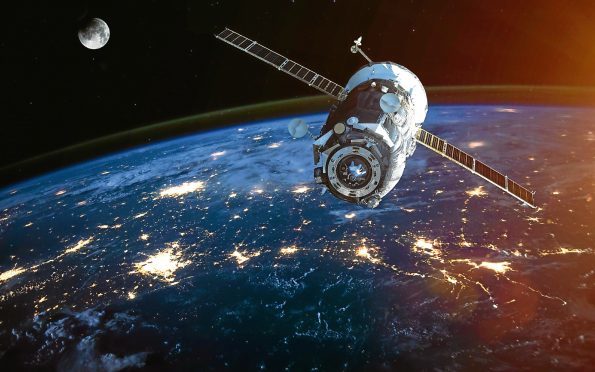Scientists are about to send a machine into space to collect the junk that circles the world – pity there is not a device to do the same closer to Earth.
If only outrageous political claims, the shrapnel of abuse and the manipulation of the 2016 referendum could be hoovered up like old bits of rocket and burned to a cinder.
The main objection to space exploration is the cost – would that had a bearing on the vanity of our Earth-bound politics.
Brexit was meant to be Britain reaching for the moon, discovering a purer, more noble version of itself in search of true liberty and escaping bureaucratic gravity.
They sold us stars and now we are offered the equivalent of scrap metal.
The cost of Brexit may be £50 billion, though bear in mind nothing has been committed to paper yet and there is still much to decide.
Remember Boris Johnson’s claim of £350 million a week coming back from the EU and being spent on the NHS, remember the same man’s claim that Brussels could “go whistle” for any payment, and his other remark that Britain “could have its cake and eat it”?
Repeating the quotes has the feeling of picking up discarded tissues, degrading and dirty.
Instead it appears that Mr Johnson is now content that Britain will be paying the EU for years to come. “Now is the moment to get the whole ship off the rocks and move it forwards,” he said yesterday, apparently unburdened by guilt or shame.
Yet Britain’s pig-in-poke Brexit is merely moving on to another set of rocks. Theresa May has said all along that Britain’s border with Ireland is a problem easy to fix.
It used to be among the hardest divides in Europe – as a reporter in Ireland, I vividly recall the concrete checkpoints and young soldiers in Land Rovers with automatic weapons pointing at the passers-by.
The Good Friday agreement of 1999 removed the barbed wire in the hope of building peace on the island – and it worked pretty well, as devolved government was revived in Belfast and terror has greatly diminished.
Yet the persistently narrow-minded DUP of Northern Ireland voted for Brexit, and now complain there might be a hard border.
As discussed before on this page, borders are a means of checking the movement of people and goods. If you don’t have a free movement agreement or customs union, then you have to have a border.
This blindingly obvious point has been resisted by the UK Government, and its DUP supporters, who simply assert there can be an invisible solution.
However, unable to invent the customs equivalent of comic book x-ray specs, the British Government has failed to persuade the Irish or the rest of the EU that this has any chance of working.
Paradoxically, the vast bill, the Irish border question, and so much more, will confirm the essence of the Brexiteers’ case – that old-fashioned sovereignty has been usurped by bureaucracy and managerial global structures.
Yet in proving this, Brexit also shows how much better it is to live in the world we have built, not the one we imagine.
We can imagine a return to British sovereignty, bristling with borders and a strong currency, but that is not where human progress has taken us.
Instead, Europeans have evolved structures beyond simple nationalism into cooperation.
The Irish fought hard for their nation a hundred years ago, but now the vast majority are quite content with blurry lines and legal ties which keep them in the EU.
As does much of the rest of Europe – there may be a cry for a new kind of democracy, for the left behinds to be heard, but that does not mean dismantling the benefits of free travel, free trade and shared resources.
Far from Britain’s Brexit restoring the dignity of the nation, it is an act of vandalism against a civilised world.
Brexit means recreating some of the conditions which led to civil war on British soil between the late 1960s and the 1990s. Who on Earth thinks that is a good idea?
In order for Britain to have any relations with its neighbours, it must pay at least £50 billion as a sign of good faith. The alleged bonus of Brexit has become a debt – there will be no stocking fillers from quitting Brussels for a generation, if there ever is.
And we haven’t even begun the job of working out what Britain does when it is paying into a club it has no influence over, its global standing diminished, its national story of being a civilising influence on the world suddenly ended by a chapter of inchoate sentiment.
The government cannot even bring itself to tell us the truth, redacting the details of assessments on our future from documents submitted to parliament this week.
It is as if we are the dying satellite, our signals to Earth getting weaker, destined to orbit without purpose on the edges of deep space.
